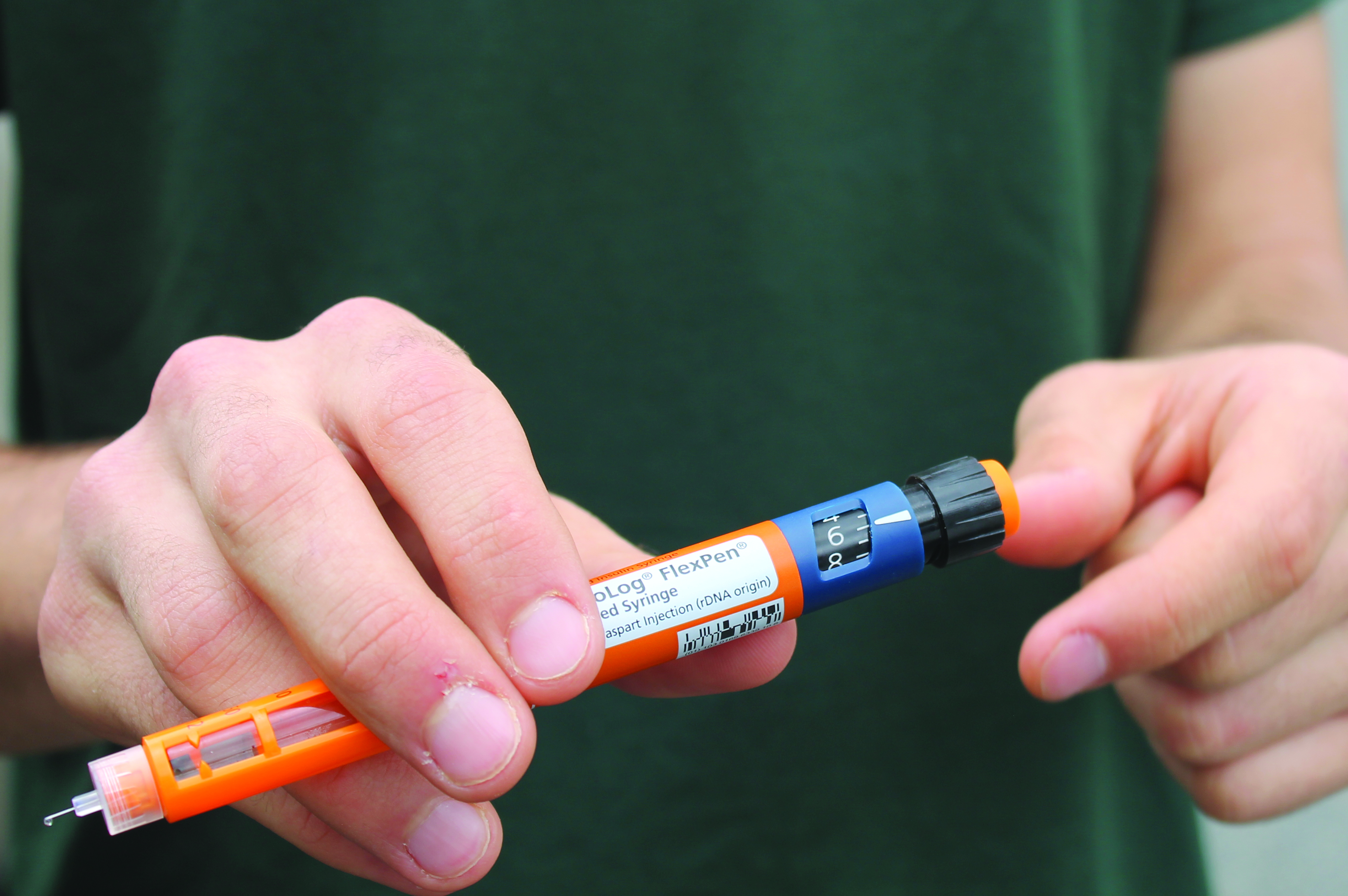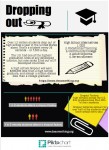Most teenagers are able to take their health for granted. Young people are rarely concerned with what foods they should eat and how to maintain their health, but for students with type 1 diabetes (formerly known as juvenile diabetes), life is a balancing act of low and high blood sugars.
“When your friends are sitting there at the table and you jab [a needle] into your arm, they’re like, ‘Why are you shooting up?’ and you’re like, ‘Because I’d die if I don’t,’ and then that’s a pretty good segue generally,” senior Cameron Bright said.
Having the disease changes day-to-day life for students with type 1 diabetes.
“Since your pancreas can’t sense or administer insulin, it’s just all based on what you’re giving yourself, so if you mess up, then your brain is completely incapacitated. It just doesn’t work,” Bright said. “You get really clammy, sweaty and paranoid. I assume it’s like being high. I don’t know; I don’t get high at all. It’s just really disconcerting.”
Avoiding blood sugar spikes involves a complicated routine of administering insulin and eating the right amounts and types of foods.
“You have to keep on top of it. You have to know what you’re doing at all times; you can’t ever relax. You can’t say, ‘I’m not going to check [my blood sugar] tonight’ because you could wake up in the morning and have a low blood sugar and then just feel god-awful,” Bright said. “A lot of your [blood glucose] numbers are really tied into your day-to-day life, so you can’t really ever just stop checking—you can’t ever stop being diabetic.”
Diabetic junior Eli Emerick said that he finds it frustrating when peers offer advice about the disease.
“They would say things like, ‘Are you sure you should be eating that?’ or ‘Is that really good for you?” Emerick said. “People tried to look out for me, but since they weren’t really knowledgeable on the subject itself, it just came across as kind of insulting.”
The disease is not only mentally difficult; it can also be physically taxing. Some diabetics say that establishing a new eating schedule is more important than changing the types of foods consumed.
“You have to snack more often, because at times, based on what your blood sugar is, you actually have to snack and sometimes you’re just hungry,” Bright said. “You have to be prepared and to keep [snacks] with you.”
Emerick initially made a more drastic change to his diet, but found that it became difficult to stick with.
“The first thing I did when I got home [from the hospital] was I made myself a salad, and I ate salads for like three or four days straight,” Emerick said. “But after a couple of months, I got really sick of it. I was like, ‘Why do I have to eat differently? Why do I have to change my lifestyle? I don’t want to be different.”
In addition to being a practical burden, the disease can be socially isolating.
“If someone is like, ‘Yeah, let’s get a cake,’ I can’t just be like, ‘Yeah, let’s get a cake!’ Emerick said. “But I mean, that’s what I would do. I’m not a great diabetic, so casual social interaction when food is involved is difficult.”
Diabetics can find it difficult to deprive themselves of certain foods in order to stay healthy.
“I guess it doesn’t sound like it would be a big deal, but to not be able to enjoy something like an ice cream cone or a piece of cake is kind of a big deal after a while,” Emerick said.
Like nearly all parents of teenagers, the parents of these students take an active role in their children’s lives. The difference is that, for their parents, nagging can make a serious difference in their children’s health.
“[My parents are] a lot more uptight about diabetes and the [blood sugar] numbers than I am, so I get yelled at a lot when I don’t actually check my blood sugar enough or I have really bad numbers,” Bright said. “But that’s like with everything in my life, so is it really diabetes, or is it just my parents?”
Though Emerick finds his parents to be helpful, especially when he was first diagnosed, he occasionally still finds it difficult to adjust.
“Part of me possibly hasn’t 100 percent accepted the disease. I still want to act like a regular kid. It doesn’t help that I’ve got people all around me that are eating like teenagers,” Emerick said. “If I only ate with my father, who’s a type 2 diabetic, I’d probably eat a lot better.”
Some diabetics try to take a laid-back approach to their condition.
“I find it a bit of a hassle sometimes, but there’s not much I can do about it, so there’s not much point [in being angry],” freshman Kai McGregor said.
Diabetes is one of many chronic health problems that can impact a teenager’s life. Diabetes can lead to serious complications like eye problems, foot and leg infections, nerve damage, heart disease and kidney failure.
“There are many health issues, but if I’m gonna die, I’m gonna die,” Bright said. “We’ll cross that bridge when we get there.”
— Frances Beroset


